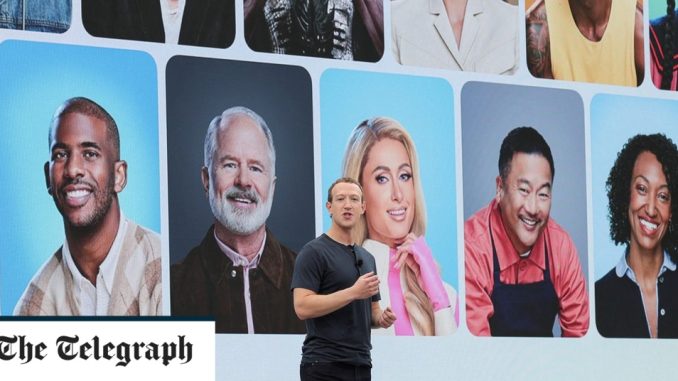
“Not too far from now you’re going to walk into a room and there are going to be as many holograms – digital things for you to interact with – as there are physical objects,” he said.
Threads, the company’s answer to Elon Musk’s Twitter, has also stuttered after a bright start. Adam Mosseri, the head of Meta-owned Instagram, admitted last week that people were not using it “as frequently as we would like”.
AI, though, is clearly an opportunity. OpenAI’s ChatGPT has been described as the fastest-growing app in internet history and companies like Microsoft and Amazon are spending billions funding AI labs.
Despite huge investment in Zuckerberg’s Metaverse headset, Meta has also focused on AI by employing some of the world’s leading researchers and making breakthroughs in areas like language translation.
But Zuckerberg has now reoriented the company around the technology, promising to bake it into “every single one of our products”.
In addition to chatbots, Meta unveiled AI image tools on Wednesday.
This will allow Instagram users to edit photos using AI, following instructions like: “Make it look like I’m at the beach” or create brand new ones with prompts like: “Imagine a dinosaur as a pet”.
The chief executive will be keenly aware of the reputational risks of jumping on the AI bandwagon.
Many of the concerns around AI – disinformation, election-rigging, hate speech – are problems that Facebook has been accused of fuelling for years. A chatbot that spouts conspiracy theories would be its worst nightmare.
In reality, the company is better equipped to address these issues than rivals such as ChatGPT and Google Bard. Years of pressure to address malign content means Meta has built its bots to be safe from the ground up.
“One of the benefits, for better or worse, of us having had all this experience moderating social media, is you have AIs that we have trained for many years now on understanding where exactly should the line be drawn,” Chris Cox, Meta’s chief product officer, who oversees the company’s AI efforts, said.


